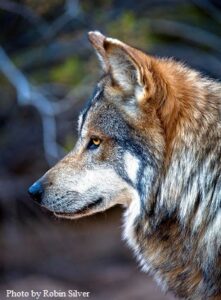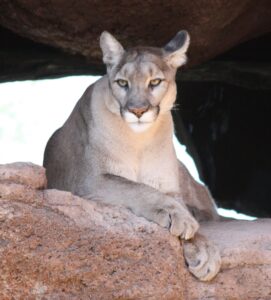Arizona’s Wildlife Hijacked by Special Interest Groups
Posted on , updated onThe management of Arizona’s wildlife has been hijacked by special interest groups that control who serves on the Arizona Game and Fish Commission (“Commission”). Since 2010 the Commission selection process has been controlled by a board whose primary concerns are protecting cattle grazing, land rights, and the interests of specific hunting groups. The Commission is charged with establishing policy for the Arizona Game and Fish Department (AZGFD) to manage and conserve the state’s wildlife. The Commission and Department claim to manage wildlife under “the Public Trust Doctrine” for the benefit of all citizens. However, even the interests of rank and file hunters are not being heard by the Commission, let alone those of hikers, wildlife watchers and others who enjoy Arizona’s amazing wild places without consuming wildlife.
policy for the Arizona Game and Fish Department (AZGFD) to manage and conserve the state’s wildlife. The Commission and Department claim to manage wildlife under “the Public Trust Doctrine” for the benefit of all citizens. However, even the interests of rank and file hunters are not being heard by the Commission, let alone those of hikers, wildlife watchers and others who enjoy Arizona’s amazing wild places without consuming wildlife.
Prior to 2010, Arizona had an appointment process through which Commission applicants would apply directly to the governor’s office. Candidates were interviewed through rigorous, but informal, processes by diverse organizations including hunting, environmental, and animal advocacy groups, which submitted names of preferred candidates to the governor. There was no requirement that the governor choose any recommended candidate. Over the years, wildlife biologists, women, and even non-consumptive users served on the Commission. It was far from being a perfect process, but there was opportunity to get more diverse applicants into the process, and to have direct participation.
That changed in 2010, when the Arizona Legislature passed SB1200 (Ariz. Rev. Stat. Ann. §17-202 (2010)) which was signed into law by then-Governor Jan Brewer, creating the Arizona Game and Fish Commission Appointment Recommendation Board (“Board”). This special-interest board was created to ensure that members of specific hunting groups and friends in the ranching community control who is appointed to serve on the Commission and limit the governor’s power to consider and appoint applicants that are not referred by the  Board. Applicants are chosen by the Board which interviews finalists and forwards the names of two to five candidates to the governor, who is restricted by law to selecting one “board endorsed” candidate.
Board. Applicants are chosen by the Board which interviews finalists and forwards the names of two to five candidates to the governor, who is restricted by law to selecting one “board endorsed” candidate.
The Commission selection process is now controlled by a board whose primary representation and expressed concerns are protecting livestock grazing, property rights, and consumptive uses of wildlife. No wildlife biologists or women have been appointed to the Commission, which lacks diversity and scientific background, and appears to view predators as competition rather than crucial components of healthy ecosystems. This has led to detrimental hunt orders, guidelines and other policies based on politics rather than the best available science.
Unlike the Commission which webcasts its meetings, the Board’s meetings and interviews of candidates are not available to view on line (although they are open to the public). ADLA volunteers have attended and recorded board meetings and interviews from 2017 – 2021, which are posted on ADLA’s YouTube channel.
Many interview questions are in the form of speeches that target animal advocacy groups, federal government overreach, the Endangered Species Act, and predators including the endangered Mexican gray wolf. Questions include how to protect agricultural and landowner interests and if the applicant supports predator control. Over the years those questions have become less blatant but the theme of protecting trophy hunting and ranching interests remains.
ADLA believes that the Board’s creation was a major step backwards for wildlife protection. It not only deprives animal protection groups of participation in the selection process, it excludes rank and file hunters while giving power to 1% of hunters who belong to special interest clubs that helped pass this legislation. Please watch these interviews and contact Governor Doug Ducey and your state legislators to tell them you think the Board needs to be abolished. Also contact ADLA to let us know if you want to learn more about wildlife management in Arizona and how you can help.
By Stephanie Nichols-Young and Karen Michael, Animal Defense League of Arizona
